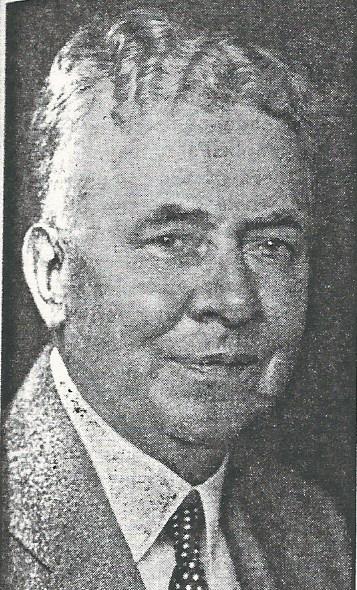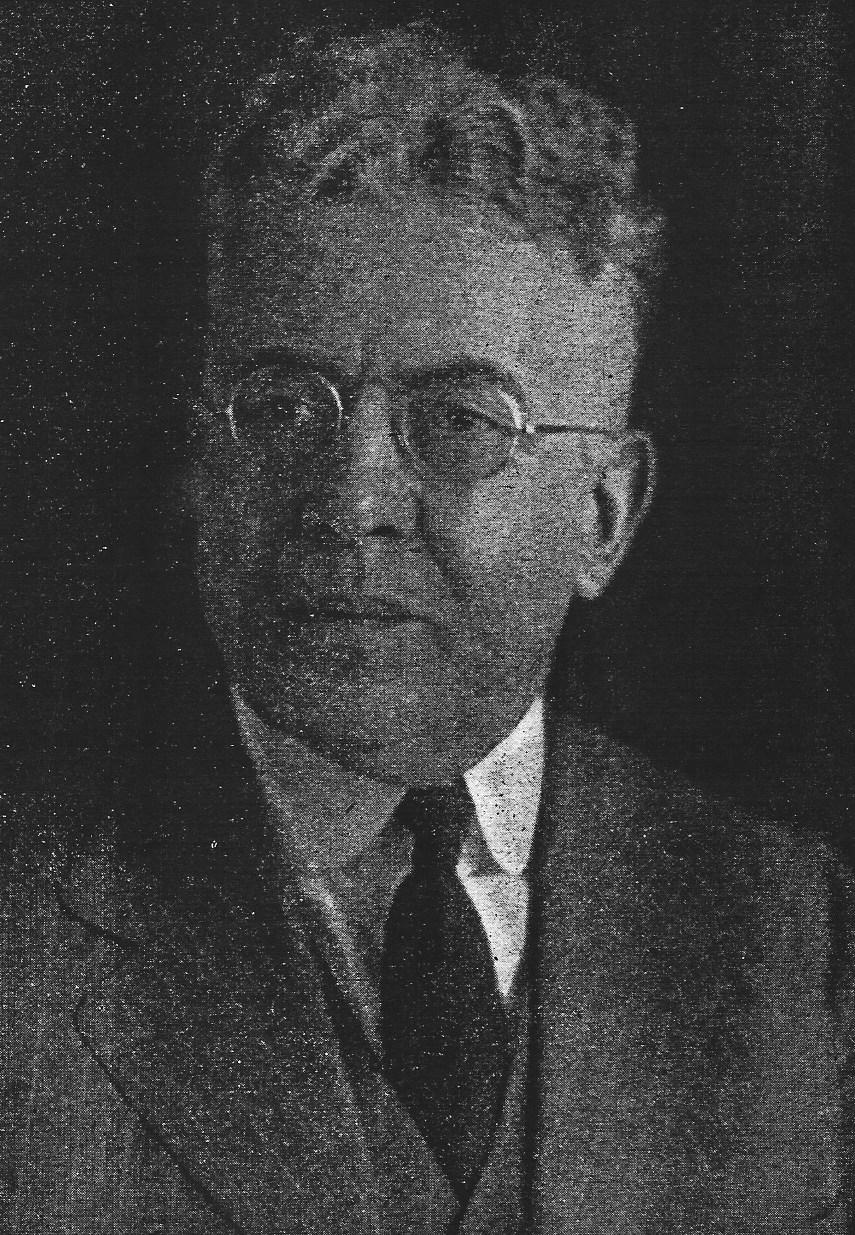T. Q. Martin
by Bruce Daugherty
Evangelist T. Q. Martin had a long and influential association with the Christian Leader. He served as an associate editor from 1912 till the sale of the paper in 1938. After Fred Rowe reaquired the Leader in 1941, Martin served as editor until his death on June 17, 1947.

Thacker Quisenberry Martin was born in Clark county, Kentucky on August 17, 1865. Like J. W. Shepherd, he had been baptized by J. A. Harding and also studied at the College of the Bible at Lexington. Among Martin’s classmates whom he recalled with fondness was William Ellmore.(Martin, 1929, 5). In 1898, Martin was able to spend a year in Nashville, “having classes under the lamented Lipscomb and Harding, and under Dr. Ward and J. N. Armstrong.” (Advocate, 441).
Martin’s preaching career began the same year he entered school at Lexington, 1889. Martin spent five years with J. A. Harding teaching Bible and English grammar at Potter Bible College. He was also President of the Western Bible and Literary College in Odessa, Missouri.(West, vi). Though he had productive years serving on the faculty of two Bible schools, T. Q. Martin was known primarily as a preacher. Among the preachers of his day, few were more in demand than Martin. "He had a power over an audience that few men possess." (Taylor, 3). In his early years, he preached mostly in evangelistic meetings. This type of work took him to thirty-two states, the District of Columbia, and Canada. Two and three week meetings preaching twice a day were typical in the period. His Sermon Outlines demonstrate lessons that were Bible centered, touching on the themes of God’s provisions for man, and designed to awaken a personal sense of responsibility in obedience to the gospel and living the Christian life.
Martin’s style of preaching made an appeal to his listeners’ hearts. He could use humor when needed, as he was fond of telling a joke and was noted for his Irish wit. But more often, his stories were sad stories which moved his listeners to tears. But he also knew when emotions were out of control. In extending the invitation during the last night of a meeting, fifteen people responded. When shouting began over the response of a “particularly reckless young man,” Martin stopped the invitation song and said: “Brethren, feeling is running too high. I should be glad for every unsaved man and woman under this roof to come forward tonight but sometimes excitement runs high and persons do what they wouldn’t do in a sober state of mind.”(Martin, Life, 47-48). Without any further singing or exhortation, four more responded, making sixty-nine for the meeting.
Details of his evangelistic work for 1915 reveal that he held 17 protracted meetings in Ohio, West Virginia, Indiana, Wisconsin, Kentucky, and Tennessee. 217 people were added to the congregations where he had preached.(Martin, 1915, 4).
Martin experienced many sufferings and sorrows in his ministry. His first wife, Elizabeth Rutledge died in 1916.(Woodlee, 6). A daughter, Anna Clay, died in infancy.(Martin, Life, 17). Later, another daughter, Nancy Sue Lavengood passed away after a sudden and unexpected illness.(Martin, 1934, 5). In his loss of loved ones and in his many sicknesses, he found strength in turning them over to God. “Disappointments that hurt, that crush, that are too heavy for us to bear alone, come our way, and unless we have trained ourselves to leave it all to “Him who marks the sparrow’s fall,” we will fall beneath the load, give up in despair, and perhaps seek to end it all by self destruction.”(Martin, 1931, 5). He went on to say, “God’s grace is greater than our sins, and by that grace we may conquer every disappointment that may meet us as we journey toward the home of the soul.”(Ibid.).
Martin served three congregations in a “located” capacity: Sellarsburg, Indiana (1911-1913); St. Marys, West Virginia (1917-1929); and the Central congregation in McMinnville, Tennessee (1929-1942). While located in Indiana and West Virginia, Martin would spend about half the year with the congregation (usually the winter months) and the other half of the year holding meetings.(Martin, Leaving, 10). This would change at McMinnville, where advancing age and growing health problems would curtail his meeting work.
Martin’s editorial work with the Leader added to the influence he had established in his preaching. He wielded an independent pen. He did not agree with all of his fellow editors on every point. But he did not believe that a monolithic position was needed by the paper to be effective. He would candidly state: “I do not approve everything I see in the Leader or in any other paper I have ever read. But knowing that all writers are human and therefore imperfect, I press on in an effort to do good and to set a good example.” (Martin, 1922, 5).

T. Q. Martin “retired” from preaching for the Central congregation in McMinnville in 1942, due to health problems. He would occasionally preach and did what he could in writing for the Leader. The congregation at McMinnville held him in high esteem and cared for the Martins’ needs with a fixed income. He “crossed the Great Divide” on June 17, 1947.
Works Cited
Martin, T. Q. A Brief Story of the Life, Experiences and Exhortations of T. Q. Martin. Jackson, TN: Laycook Printing, n. d.
_________. Sermon Outlines of T. Q. Martin. Morris Womack, ed. Indianapolis: Religious Book Service, 1953. (Contains a brief biographical sketch written by Earl I. West).
_________. "The Circle is Becoming Smaller" Christian Leader 43 (Nov. 12, 1929):5.
_________. "A Year in the Field" Christian Leader 29 (Dec. 14, 1915):4.
_________. "You Have Come Too Late" Christian Leader 48 (Aug. 21, 1934):5.
_________. "Thy Will Be Done" Christian Leader 45 (May 12, 1931):5.
_________. "Leaving St. Marys" Christian Leader 43 (Oct. 22, 1929):10.
_________. "A Friendly Word to Readers of the C. L." Christian Leader 36 (Mar. 21, 1922):5.
"T. Q. Martin" Gospel Advocate 82 (May 9, 1940):441.
Taylor, Ben F. "Joined the Bivouac of the Dead" Christian Leader 61 (Aug. 17, 1947):3.
Woodlee, Lena Burger. "Called Home from Service to Reward" Christian Leader 30 (Aug. 8, 1916):6.
